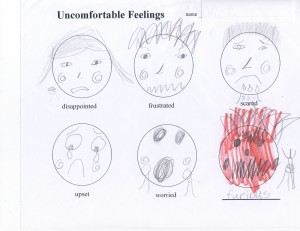What kind of person attacks two moms pushing their infants in strollers, punching the women, trying to rip off their headscarves, attempting to knock over the strollers, and screaming at them, “get the f*ck out of America b*tches, you don’t belong here.”? Emirjeta Xhelili is that person’s name.

What kind of America do we want?
What kind of person shoves a sixteen-year old boy and calls the boy’s mother (an 11-year veteran of the NYPD) a member of the Islamic State terrorist group, threatens to cut her throat and tells her to go back to her country? Christopher Nelson is that person’s name.
What kind of teacher tells African-American students: “Don’t make me call Donald Trump to get you sent back to Africa.” John Sousa from Wesley Chapel, Florida is that teacher’s name.
What kind of person pulls a 75-year-old gay man from his car and beats him, saying “You know my new president says we can kill all you f*ggots now.” A person in Sarasota, Florida.
Caitlin Dickerson recently wrote in her New York Times article Postelection Harassment, Case by Case “Vandalism, offensive jokes, even criminal assault — reports of bias-based harassment have spiked since Trump’s victory in the presidential race.”
Yeah, I’ve noticed.
So has the Southern Poverty Law Center. In the days following the election, they surveyed more than 10,000 K-12 grade educators across the country. Ninety percent of them reported that school climate has been “negatively impacted.” There is a name for impact. It is being called the Trump Effect. SPLC’s report goes on to say survey results indicated “… the campaign is having a profoundly negative impact on schoolchildren across the country, producing an alarming level of fear and anxiety among children of color and inflaming racial and ethnic tensions in the classroom. Many students worry about being deported.”
Many educators fear teaching about what’s been happening since the election.
Push through the fear, teachers, and do your job.
This isn’t about politics or taking sides. This is about moral leadership. We all remember that, right? Helping kids develop a moral compass is the essence of teaching. Children have to be taught not to hate and fear. It has to come from those of us who understand why getting along with others is the curriculum. Don’t let people with hate-filled hearts teach your children or intimidate them or make them feel “less than.”
If those essential lessons of cooperation and understanding, respect and compassion, justice and equality are not taught, at home and at school, if we do not instill in our kids the courage to stand up and speak out against injustice wherever we see it, we have lost the heart and soul of America.
What kind of person are you? What kind of person are you teaching your child to be?













